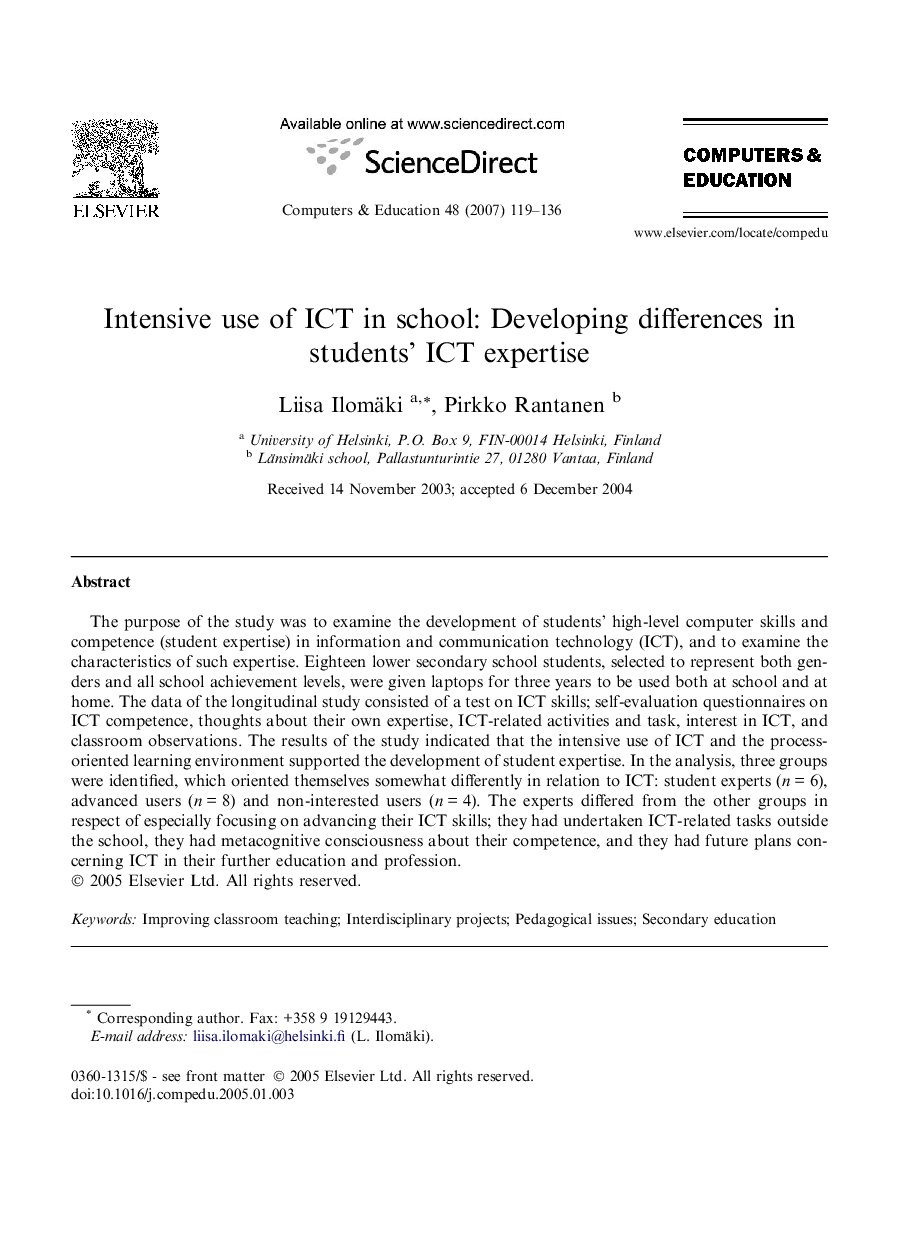| Article ID | Journal | Published Year | Pages | File Type |
|---|---|---|---|---|
| 350050 | Computers & Education | 2007 | 18 Pages |
The purpose of the study was to examine the development of students’ high-level computer skills and competence (student expertise) in information and communication technology (ICT), and to examine the characteristics of such expertise. Eighteen lower secondary school students, selected to represent both genders and all school achievement levels, were given laptops for three years to be used both at school and at home. The data of the longitudinal study consisted of a test on ICT skills; self-evaluation questionnaires on ICT competence, thoughts about their own expertise, ICT-related activities and task, interest in ICT, and classroom observations. The results of the study indicated that the intensive use of ICT and the process-oriented learning environment supported the development of student expertise. In the analysis, three groups were identified, which oriented themselves somewhat differently in relation to ICT: student experts (n = 6), advanced users (n = 8) and non-interested users (n = 4). The experts differed from the other groups in respect of especially focusing on advancing their ICT skills; they had undertaken ICT-related tasks outside the school, they had metacognitive consciousness about their competence, and they had future plans concerning ICT in their further education and profession.
